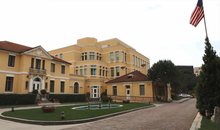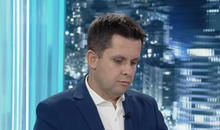
 Flash News
Flash News
Toxic waste 'stock' in Albania, Basel Network: No progress in investigations by Durres Prosecutor's Office
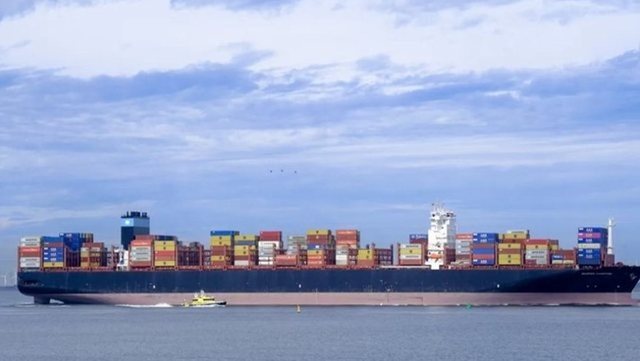
After 12 weeks have passed since the arrival of the Turkish ship Moliva, with 102 containers of suspected toxic waste, the Basel Action Network (BAN) and Milieukontakt Albania denounced the complete silence of the government and the apparent lack of any progress on this issue by the Government of Albania and the Durrës Prosecutor's Office.
The containers left Durres last July on a controversial trip to Thailand, only to be returned to Durres from Singapore after the Basel Action Network (BAN), following a tip from a whistleblower, learned that Albanian and Thai authorities had never authorized the shipment, despite the strong likelihood that the material was hazardous waste from secondary steel dust pollution.
Following the warning, Singaporean and Thai authorities, as well as officials from shipping lines Maersk and MSC, collaborated to return the containers to Durrës. The containers arrived in Moliva on October 28, 2024 and after their seizure by the Durrës prosecutor's office, they were removed and sent to the Porto Romano port area north of Durrës.
The plan was for the contents of the containers to be sampled and analyzed by independent laboratories as part of the Durrës Prosecutor’s case to determine whether the material was in fact waste and, through “chemical traces,” to determine who generated the material. So far, all indications point to the Kurum steelworks located in Elbasan, Albania, as the source.
“We are not even sure that samples have been taken and analysis has begun,” said Jim Puckett of (BAN). “If it has, it is concerning that the sampling was not done publicly and with proper protocols and chain of custody procedures were followed. Illegal trafficking of hazardous waste is a serious issue that requires criminal sanctions under the treaty that Albania is a signatory to. It is not acceptable to pretend that it did not happen and hope that it will be forgotten,” he said.
According to the rules of the Basel Convention, to which Albania and Thailand are Parties, the export of hazardous waste can only take place with the written consent of the exporting, transit and importing countries. According to BAN and Milieukontakt, the issue of liability and criminal responsibility can no longer be ignored. The groups find it highly irregular that after so many weeks nothing has been reported.
BAN had previously provided information to the Durrës Prosecution in a witness statement, which included photographs of the whistleblower and original declarations of waste being loaded at the port of Durrës, as well as sampling data showing high levels of contamination from the proposed receiving facility in Thailand. And all the container numbers of the waste involved, including the container numbers of 110 other containers sent earlier in 2024 to China, which China had seized as illegal waste imports.
BAN had also referred the authorities to several excellent laboratories in the EU that could analyze the remains. But despite Milieukontakt bringing the testimony in person to the Durrës Prosecutor’s Office, the office refused to accept the information, saying that it had to be personally submitted by BAN as the author. BAN, which has no staff in Albania but is instead based in the United States, then offered to send a sworn and notarized statement to the Durrës office affirming the truth of the testimony, but this offer was ignored.
“Today at Citizens.al we are publishing the BAN information we provided to the Durrës Prosecutor’s Office and calling for action,” said Valbona Mazreku from Milieukontakt. “The people of Albania demand answers now from the Albanian authorities. The question of how this happened and who is responsible cannot simply be swept under the rug. They deserve to know who in their country and perhaps in their government is complicit in what appears to be gross negligence or a crime.” she said.
The organizations are requesting answers to 5 questions from both the Ministry of Environment and the Prosecutor's Office.
1. What is the reason for the delay in reporting progress in this case? When will the news come?
2. What are the sampling and analysis plans for material on board seized containers?
3. What is the determination of whether or not the export was illegal? If so, why was it illegal and who is responsible? If not illegal, why not?
4. What are the lessons learned from this scandal and what steps have been taken to ensure that this does not happen again?
5. What is the plan for the 102 containers of material currently in Porto Romano after they have been tested? How will they be disposed of? Likewise, what is the plan for the 110 containers of similar material currently in China. How will they be disposed of?
Latest news


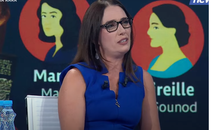
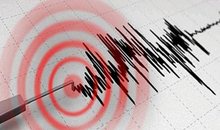
Earthquake tremors felt again in Tirana
2025-06-24 22:11:53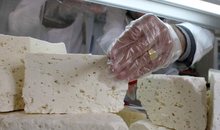
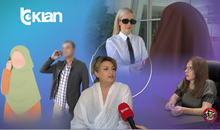
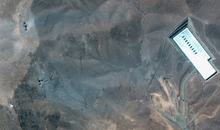
US intelligence: Attacks on Iran did not destroy nuclear plants
2025-06-24 21:30:31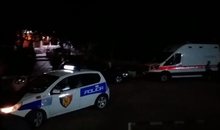
Accident on the Fier-Cekan axis, 3 injured
2025-06-24 21:16:32

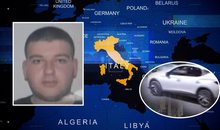
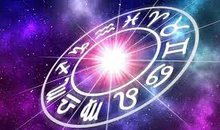
Cancer season, what is expected to happen for each zodiac sign
2025-06-24 20:15:54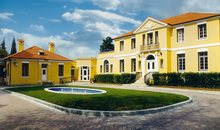

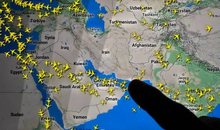
After ceasefire, Iranian airspace partially reopens to international flights
2025-06-24 19:47:10
Oil prices fall after Israel-Iran ceasefire reached
2025-06-24 19:26:52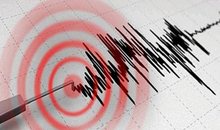
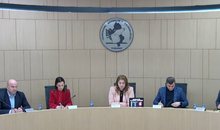

Will Iran participate in the 2026 World Cup being held in the USA?
2025-06-24 18:46:36
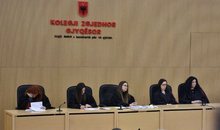
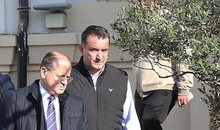
BIRN: Veliaj hires British law firm for defense! Huge sum revealed
2025-06-24 18:20:16
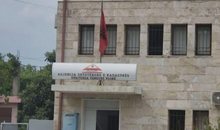
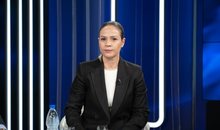
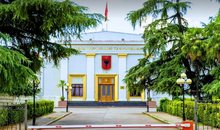
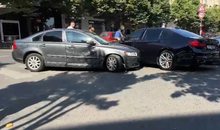
Accident on "Durrës Road" in Tirana, 3 cars collide
2025-06-24 16:52:05
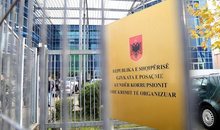
GJKKO sentences Dritan Lleshi to 8 months in prison for unlawful influence
2025-06-24 16:29:29
Former head of the DP branch in Vlora elected head of the Cadastre
2025-06-24 16:19:22

What does facial yoga offer and why is it considered an elixir of youth?
2025-06-24 16:07:40

"Temperatures will reach 40°C"/ AKMC appeals to citizens: Be careful!
2025-06-24 15:36:18
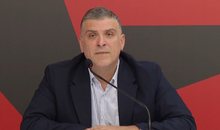
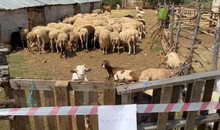
Second outbreak of plague in Korça, over 190 heads of cattle destroyed
2025-06-24 14:57:32
How often should you reapply sunscreen?
2025-06-24 14:44:29
Hitting OSHEE employee, 38-year-old arrested in Tirana
2025-06-24 14:34:37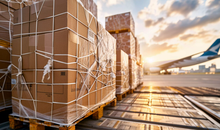
Albania less competitive in 2024, export businesses fall
2025-06-24 14:20:32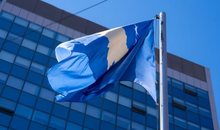
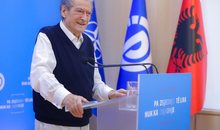
Partial local elections, Berisha: With Edi Rama there are only farces
2025-06-24 14:03:50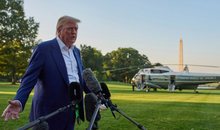
Ceasefire Violation, Trump Warns Iran and Israel: Do Not Attack
2025-06-24 13:47:21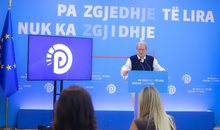
Berisha: Fox News slammed Edi Rama as Europe's Ramaduro
2025-06-24 13:38:03
What happened to him? Louis Ailey ends up in the hospital
2025-06-24 13:29:24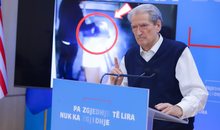
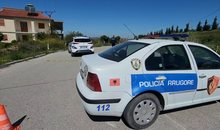
Accident in Divjaka, 15-year-old dies while riding a motorcycle
2025-06-24 13:09:38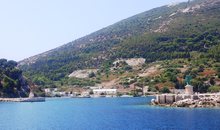
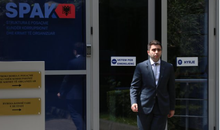
SPAK takes the head of the Procurement Commission as a defendant
2025-06-24 12:55:21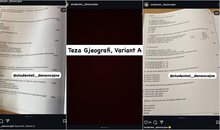

Rutte: US is fully committed to NATO
2025-06-24 12:39:49

SPAK gives the claim for "Metamorphosis", 13 years in prison for Dedan Gjoni
2025-06-24 12:16:29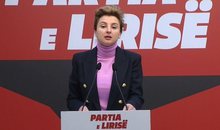
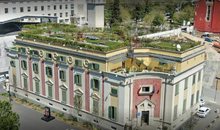
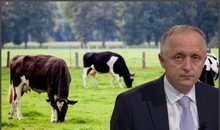
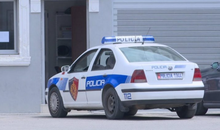
Gunshots in the Institute area
2025-06-24 11:33:15


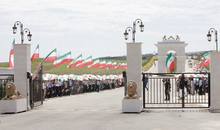
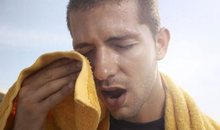
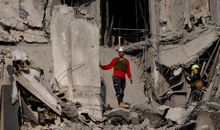
Iran violates ceasefire, attacks Israel with missiles
2025-06-24 10:24:50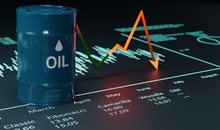
Oil prices drop sharply after Iran-Israel ceasefire
2025-06-24 10:12:45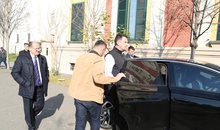
A London company is taking care of Erion Veliaj's reputation
2025-06-24 10:04:43
Milan offers 27 million euros for Albanian talent
2025-06-24 09:58:42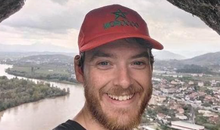
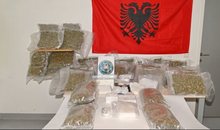
Albanian cocaine gang busted in Germany, uncle and nephew 'heads' of the group
2025-06-24 09:32:10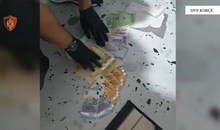
Apartment adapted for prostitution, Chinese woman arrested, 1 other wanted
2025-06-24 09:24:44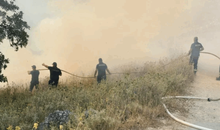
Three fires still active in the country! Here are the most problematic areas
2025-06-24 09:13:59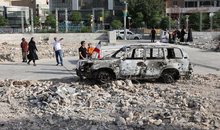
Israel agrees to ceasefire with Iran
2025-06-24 08:59:03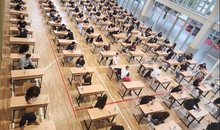
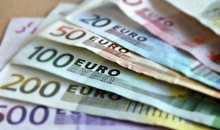
Foreign exchange, how much foreign currencies are sold and bought today
2025-06-24 08:39:02
How are dairy cows "disappearing"? Albania risks becoming dependent on imports
2025-06-24 08:27:28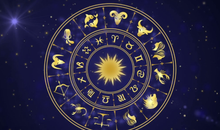
Horoscope, what do the stars have in store for you?
2025-06-24 08:17:36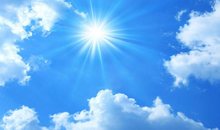
Weather forecast, how temperatures will change during the day
2025-06-24 08:04:54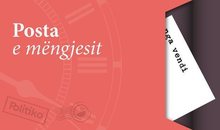
Morning Post/ In 2 lines: What mattered yesterday in Albania
2025-06-24 07:47:57
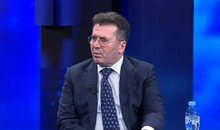


US bombings of Iran, Haxhiu: Radical groups bring the risk of escalation
2025-06-23 22:05:53
May 11, Bardhi: The DP was faced with the state and its other dark sides
2025-06-23 21:41:53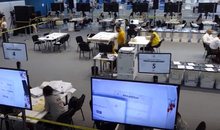
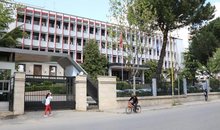

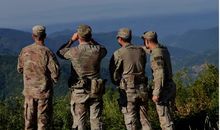
Kosovo - far from the Middle East, but close to the consequences
2025-06-23 20:24:48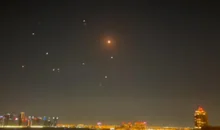
War/ Iran notified Qatar before attack on US air base
2025-06-23 20:14:27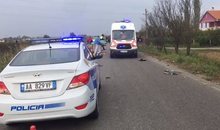
Accident on the Shkodër-Muriqan axis, two injured
2025-06-23 19:54:18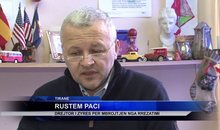
Is Albania at risk from radiation in case of nuclear attacks? Expert explains
2025-06-23 19:49:11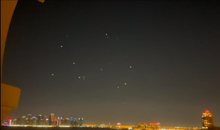

Another operation in Abu Dhabi, one of Dritan Gjika's associates arrested
2025-06-23 19:19:52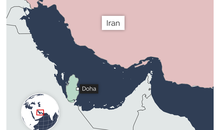
Iran retaliates against US, attacks US air base in Qatar with missiles
2025-06-23 19:00:47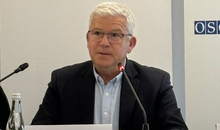
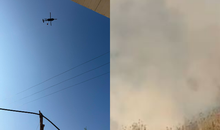
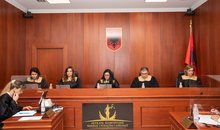
KPA upholds dismissal of prosecutor Çlirim Sino
2025-06-23 18:26:38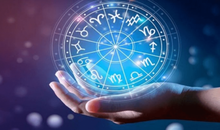
Changes in life and career growth, here are the three luckiest signs of the week
2025-06-23 18:23:05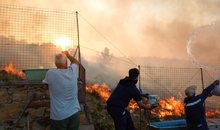
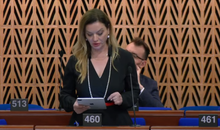
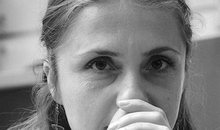
New Bureau Director
2025-06-23 17:40:36